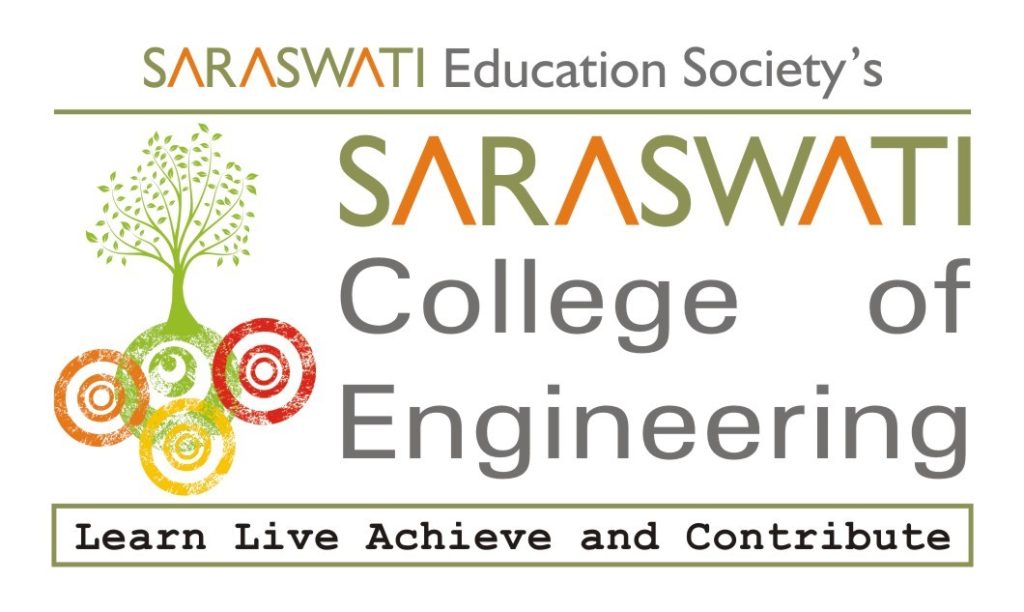M.Tech in Civil Engineering in India 2025 – Specializations, Careers, Salary

Introduction
Behind every expanding skyline, spreading commute network, and sustainable skyscraper are civil engineers who not only understand concrete and steel but also master digital modeling, green building practices, and advanced project management. Smart cities are reshaping how we live, and infrastructure megaprojects are redefining India’s economic landscape.
This surge has amplified the global demand for engineers who can blend traditional civil expertise with modern technology and sustainability practices. And one of the prominent groups is the postgraduates in civil engineering. From earthquake-resistant structural design and smart transportation systems to AI-driven project management and green building technologies, advanced civil engineers are the unseen architects of progress.
What does M.Tech in Civil Engineering cover?
An M.Tech in Civil Engineering is a two-year postgraduate program that takes graduates beyond fundamentals into advanced problem-solving, research, and leadership. The four-semester program focuses on sustainable, technology-driven solutions for modern infrastructure challenges, combining rigorous academics with practical projects to prepare engineers for high-impact roles.
Civil Specialization
M.Tech in Civil Engineering offers multiple focused areas of study, including fe emerging areas, that prepares students to address the future of infrastructure:
- Structural Engineering – Focuses on designing safe, resilient buildings and bridges, ensuring durability and safety under diverse loads and conditions.
- Transportation Engineering – Deals with planning and optimizing transportation systems, improving mobility, efficiency, and urban connectivity.
- Geotechnical Engineering – Studies soil behaviour and foundation design, ensuring stable, secure structures and minimising geotechnical risks.
- Water Resources and Environmental Engineering – Concentrates on managing water resources and environmental systems for sustainable urban and rural development.
- Construction Management – Covers project planning and execution, improving cost efficiency, timelines, and quality in infrastructure delivery.
In addition to these, there are a few emerging areas of specialisation in civil as well, such as:
- Coastal Engineering – Addresses shoreline protection and climate-resilient coastal infrastructure to safeguard communities and ecosystems.
- Green Construction – Focuses on eco-friendly building practices, energy efficiency, and sustainable materials to reduce environmental impact.
Skills Needed
Beyond technical knowledge, successful M.Tech civil engineers master a mix of tools and soft skills:
Technical Skills
- Proficiency in CAD/CAE and BIM software (AutoCAD, Revit, ETABS, PLAXIS, Primavera).
- Understanding of IS codes and global standards for design and safety.
- Familiarity with AI/ML basics for smart infrastructure and digital twins for construction optimization.
- Competence in sustainable design practices and green building certifications.
Soft Skills
- Analytical thinking and problem-solving for complex, multidisciplinary projects.
- Project management and leadership to coordinate diverse teams and stakeholders.
- Communication and collaboration for presenting designs and working across disciplines.
- Adaptability to rapidly changing technologies and regulatory environments.
Fees
Tuition fees are typically variable in India, as they vary by institute and specialization.
- Government Institutions – Fees are generally lower, often ranging between ₹1.2–2.5 lakh for the full two-year program, thanks to subsidies and state support.
- Private Universities and Colleges – They tend to have higher tuition cost, which ranges between ₹2.5–5 lakh, but they also offer extra amenities, research opportunities, and partnerships with industries.
- Specialization Impact – Few programs, such as Construction Management, might cost slightly higher fees due to the requirements like advanced laboratory facilities and project-heavy coursework, while conventional programs like Structural Engineering or Transportation Engineering may remain closer to the average fee range.
Career Opportunities after M.Tech in Civil
The following table shows how an M.Tech in civil engineering can open pathways across industries, and offer core roles, responsibilities, and salary outlooks within India’s growing USD 1 trillion construction market.
| Role / Position | Responsibilities |
| Structural Engineer | Designs earthquake-resistant high-rises and long-span bridges that improve urban safety. |
| Transportation Planner | Optimizes urban mobility, reducing congestion and emissions through smart transport networks. |
| Geotechnical Engineer | Secures foundations for mega projects like metros and tunnels, preventing costly failures. |
| Water Resources Engineer | Ensures reliable water supply and flood management in climate-sensitive regions. |
| Construction Manager | Drives cost-effective, on-time delivery of large-scale infrastructure developments. |
| Coastal Engineer | Protects shorelines and ports against erosion and rising sea levels. |
| Green Construction Specialist | Leads eco-certified projects, reducing carbon footprints and promoting sustainability. |
Salary
The earning potential of an M.Tech civil engineer depends on the experience and specialisation, as the salaries tend to rise sharply as engineers move from technical execution into project leadership or expertise roles:
- Entry-level (0–2 years): ₹5–8 LPA
- Typical for fresh M.Tech graduates across EPC firms, consultancies, and metro projects.
- Mid-level (3–6 years): ₹10–16 LPA
- Higher packages for roles in transportation planning, construction management, and R&D-intensive positions.
- Senior-level (7+ years): ₹18 LPA and above
- Includes leadership positions in EPC consultancies, smart city projects, and specialized research roles.
Future Trends
- Green and Sustainable Infrastructure – Eco-friendly materials, net-zero energy buildings, and climate-resilient designs.
- Digital Twins and BIM Adoption – Real-time data models improving accuracy, efficiency, and cost savings.
- 3D Printing and Modular Construction – Faster, resource-efficient building methods transforming project timelines.
- AI and Predictive Analytics – Smarter project management, maintenance planning, and resource allocation.
- Smart Cities and Urban Mobility – Integrated transport systems, IoT-enabled infrastructure, and advanced traffic management solutions.
Why pursue M.Tech in Civil Engineering at SCOE?
Saraswati College of Engineering (SCOE) in Mumbai stands out for its academic excellence, advanced facilities, and proximity to one of India’s most active infrastructure corridors, i.e. Pune-Mumbai corridor. The following are the key reasons why SCOE is an ideal choice:
- Accreditations & Quality Assurance – NAAC A+ accreditation and NBA-accredited programs ensure adherence to rigorous academic and industry standards.
- Autonomous Curriculum – SCOE’s autonomy allows the program to integrate emerging areas like AI-driven project management into the syllabus quickly.
- Strategic Location – Navi Mumbai’s closeness to the Pune–Mumbai industrial and infrastructure hub provides unmatched opportunities for internships, industrial visits, and collaborations with leading firms.
- State-of-the-Art Facilities – Modern labs for structural analysis, geotechnical studies, BIM modeling, and water resources projects prepare students for real-world challenges.
- Industry Connect & Recruiters – Strong ties with EPC giants, consultancies, and government agencies open doors to high-quality placements and live projects.
- Research and Innovation Culture – Support for publishing papers, participating in conferences, and developing solutions for India’s pressing infrastructure needs.
- Alumni Network & Mentorship – A robust network of professionals across the infrastructure and construction sectors provides guidance, referrals, and career growth opportunities.
Conclusion
The demand for skilled civil engineers is rising as India’s construction and infrastructure market accelerates toward USD 1 trillion by 2030. An M.Tech in Civil Engineering prepares professionals to address challenges such as climate-resilient infrastructure, smart transportation systems, and sustainable urban development.
For aspirants, choosing SCOE to pursue an M.Tech in Civil Engineering is not just a career step – it’s a commitment to building a better, more sustainable world. SCOE not only equips you with advanced technical skills, but it also connects you directly to industry, innovation, and the future of sustainable infrastructure in India.
By deepening your expertise with SCOE, you can move beyond routine tasks into leadership, research, and high-impact design roles that influence the way cities grow and communities thrive.
FAQs
- What is the duration of an M.Tech in Civil Engineering in India?
It’s typically a two-year program divided into four semesters, combining advanced coursework, laboratory work, and a research thesis or major project. - Which specialization in M.Tech Civil offers the highest career potential?
Structural and Construction Management specializations often provide the widest opportunities and higher salaries, especially in large infrastructure projects, EPC firms, and international assignments. - What salary can a fresh M.Tech. Civil graduates expect in India?
Entry-level salaries usually range from ₹5–8 LPA, varying by specialization, employer type, and city tier, with potential growth as expertise and responsibilities increase. - Are there opportunities abroad after completing M.Tech Civil Engineering?
Yes. Graduates can pursue research, consulting, or infrastructure projects worldwide, as civil engineering skills are universally in demand across developed and emerging economies. - What software skills are most valuable for M.Tech Civil students?
Proficiency in BIM tools (Revit/Navisworks), structural analysis software (ETABS/STAAD), and project management platforms (Primavera/MS Project) is highly valued by employers and research institutions.

